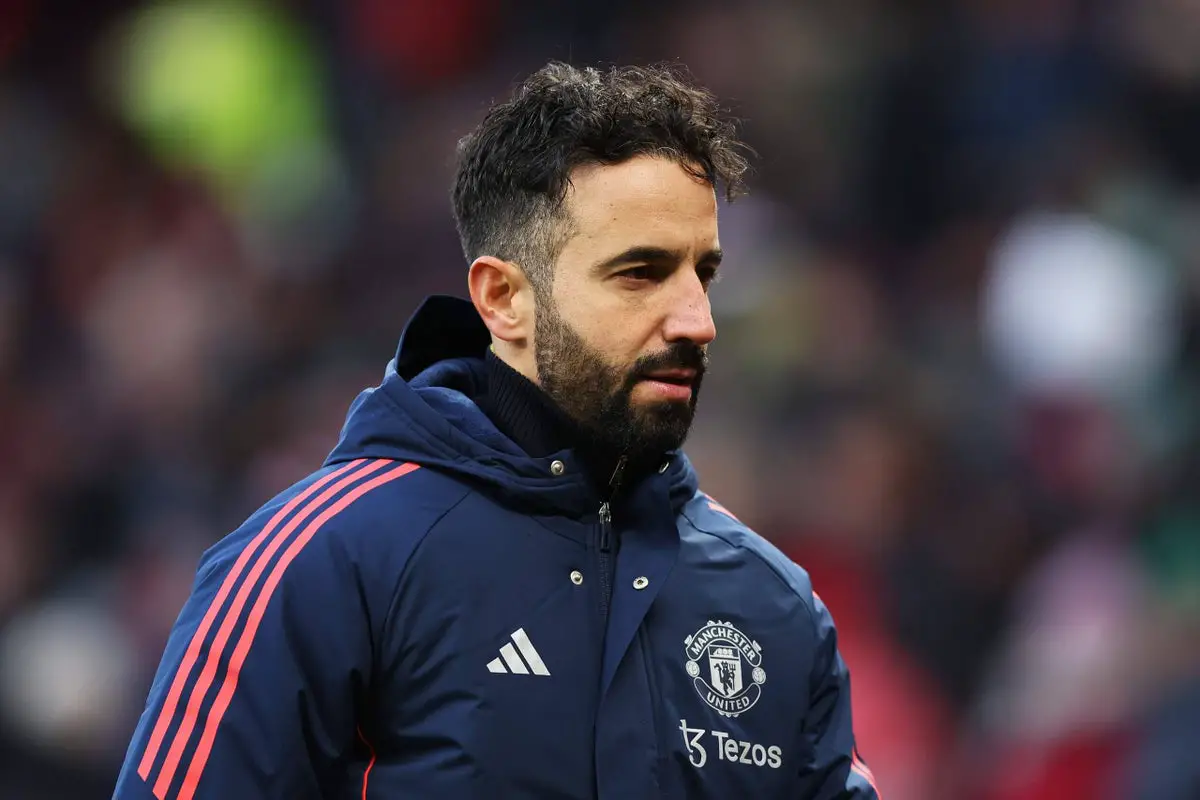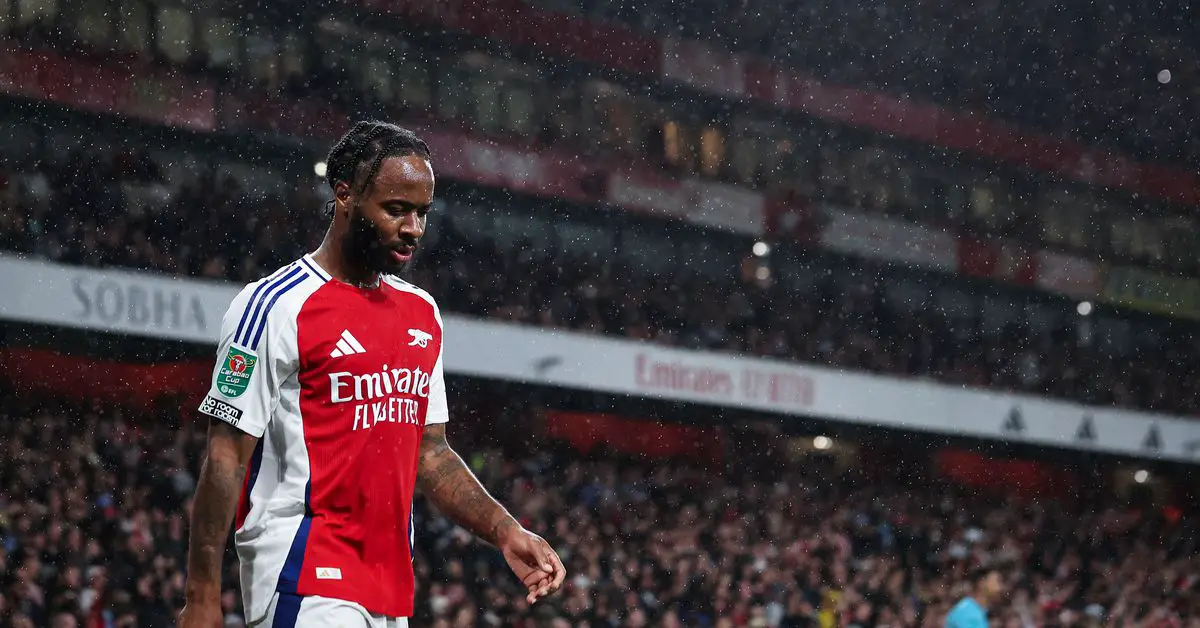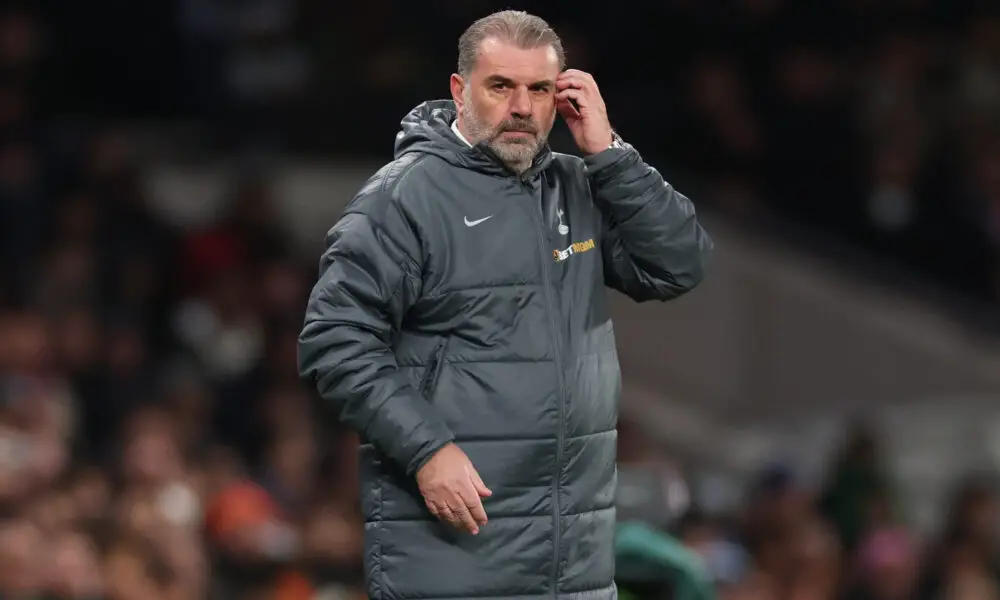Drip, drip drip. Ruben Amorim looked up as a constant trickle of water appeared from the ceiling of Manchester United’s press conference room at Old Trafford on Sunday following their 3-0 defeat to Bournemouth.
There are different solutions to fixing a leak. A bucket underneath and some tape or waterproof seal are short-term fixes. A thorough inspection and refurbishment of the structure are more costly and timely but longer, sturdier long-term solutions.
In this present moment, United are leaking goals, conceding 17 in their last nine games. The picture does not look good. They go into Christmas in the bottom half of the Premier League table (13th) for the first time since 1989-90. They are nine points off fourth place and have lost four of their last six matches.
“In this moment, everything is so hard,” said Amorim after the game. “A club like Manchester United to lose 3-0 at home, it’s tough for everybody. The fans are disappointed and tired of this moment.”
United did not deserve to win against Bournemouth after they conceded from another set piece, a careless mistake from Noussair Mazraoui to give away a penalty before losing possession in midfield allowed Bournemouth to kill the game with a third two minutes later.
But Amorim is trying to peel away the layers of tape and seal and instil a long-term vision on a team with many cracks. The problem is that implementing such a plan takes time and the Portuguese head coach is aware that at a big club like United, he does not have a lot of time and needs to win games.
Amorim said he felt “nervousness” and “anxiety” from his team and the stadium within the first minute. That shows the reality of the relatively new style of play with footballers who do not naturally fit his system in a period of the season when he has not had weekdays free of a game since his first match in charge against Ipswich on November 24.
Amorin could not hide his frustrations (Matt McNulty/Getty Images)
So much change without constant repetition and drilling on the training pitch will inevitably cause results such as the one at the weekend. Bournemouth, who have beaten Arsenal, Manchester City and Tottenham Hotspur recently to climb to fifth in the table, to their credit, were organised, disciplined and took their chances. Their players look connected, know where each other are and play with fluidity and automatism.
United, on the other hand, are still playing like they are being coached throughout the game — and that is because they are. In his first game against Ipswich, Amorim said his players were “overthinking” and “stuck” because they were unsure which position to be in. He could be seen instructing Diogo Dalot, the player closest to him, movement by movement, pass by pass.
“When we make a new structure and you are so clear on that, they need time to have some fluidity in the game,” he said after the 1-1 draw with Ipswich.
Likewise against Everton, Amorim said he had to tell players when to start to press. Against Bodo/Glimt in the Europa League, Amorim shouted over to Lisandro Martinez to give instructions on his movements, and against City, it was Amorim who told Martinez to pass to Amad.
Such a lack of connection is not helped by the amount of rotation; Amorim made six changes from the Carabao Cup defeat to Spurs. He has made at least five changes six times in his nine games in charge and opted for three changes from the City win last Sunday.
Only Bruno Fernandes has started every one of those matches. On Sunday, Kobbie Mainoo did not fully control the midfield, Joshua Zirkzee lacked impact up top in a game where Rasmus Hojlund would have been better suited given the amount of space in behind while Tyrell Malacia was rusty at left wing-back.

Fernandes at full time (Darren Staples/AFP via Getty Images)
“We are in the beginning of something and they have to feel they are part of it,” he said before the game against Glimt. “Everyone has to be on the same page.”
Amorim does not rotate to plan for the long term, though. He has stated previously it is simply to reduce the likelihood of injuries so he does not have bigger issues in the short and medium term. The amount of rotation also reflects on his demands with the increase in intensity another new aspect for the players.
He is still trying to round holes with square pegs, but his team have looked more solid, compact and less vulnerable to being torn apart through the middle. They are not losing possession as easily and are controlling transitions better than under Erik ten Hag. Amorim pointed out his team had more possession (60 per cent), created more chances (2.26 expected goals to 1.24) and conceded fewer big opportunities (two). He is right, but game state is to be considered as some of the chances United created came late on when Bournemouth had a 3-0 lead and dropped off in intensity.
There is a tension between the need for short-term results and the desire for a long-term plan to construct solid foundations. One week is a long time in football and the perception of United can change very quickly. Just think back to the 2-1 win against City, while three points against Bournemouth would have catapulted United up the table.
But compromising on the long-term vision will only paper over the cracks. It is a tricky space to be in. Amorim is steadfast in his approach — his management of Marcus Rashford’s situation a case in point — but knows United need consistency. Before the Premier League game against Arsenal earlier this month, Amorim was pragmatic. “The storm will come,” he said.
At present, there is an ominous drizzle. As patience wore off, United’s previous coaches compromised for short-term gains, but it only lasted so long. Amorim, however, seems to be prepared to weather the storm.
(Top photo: Matt McNulty/Getty Images)




